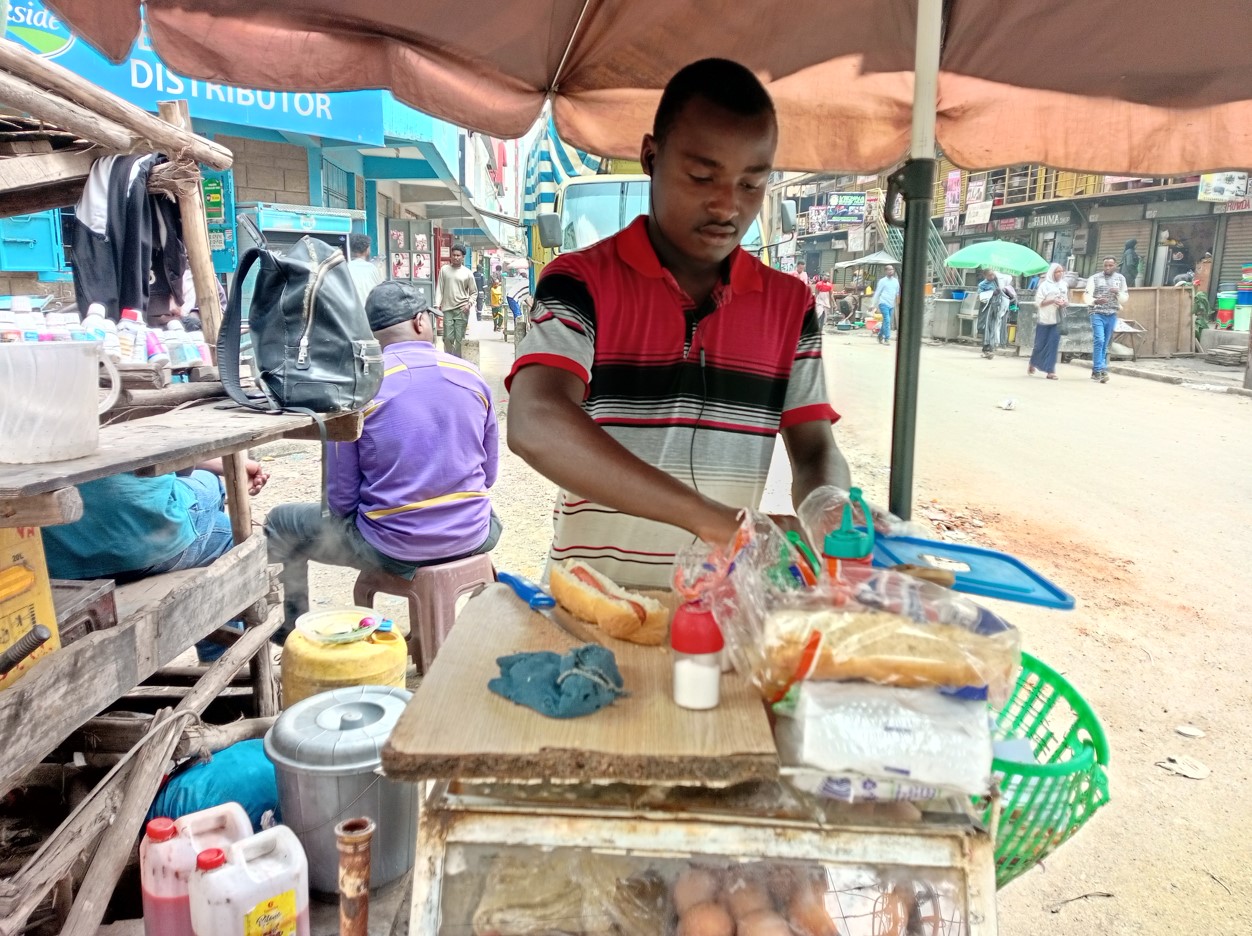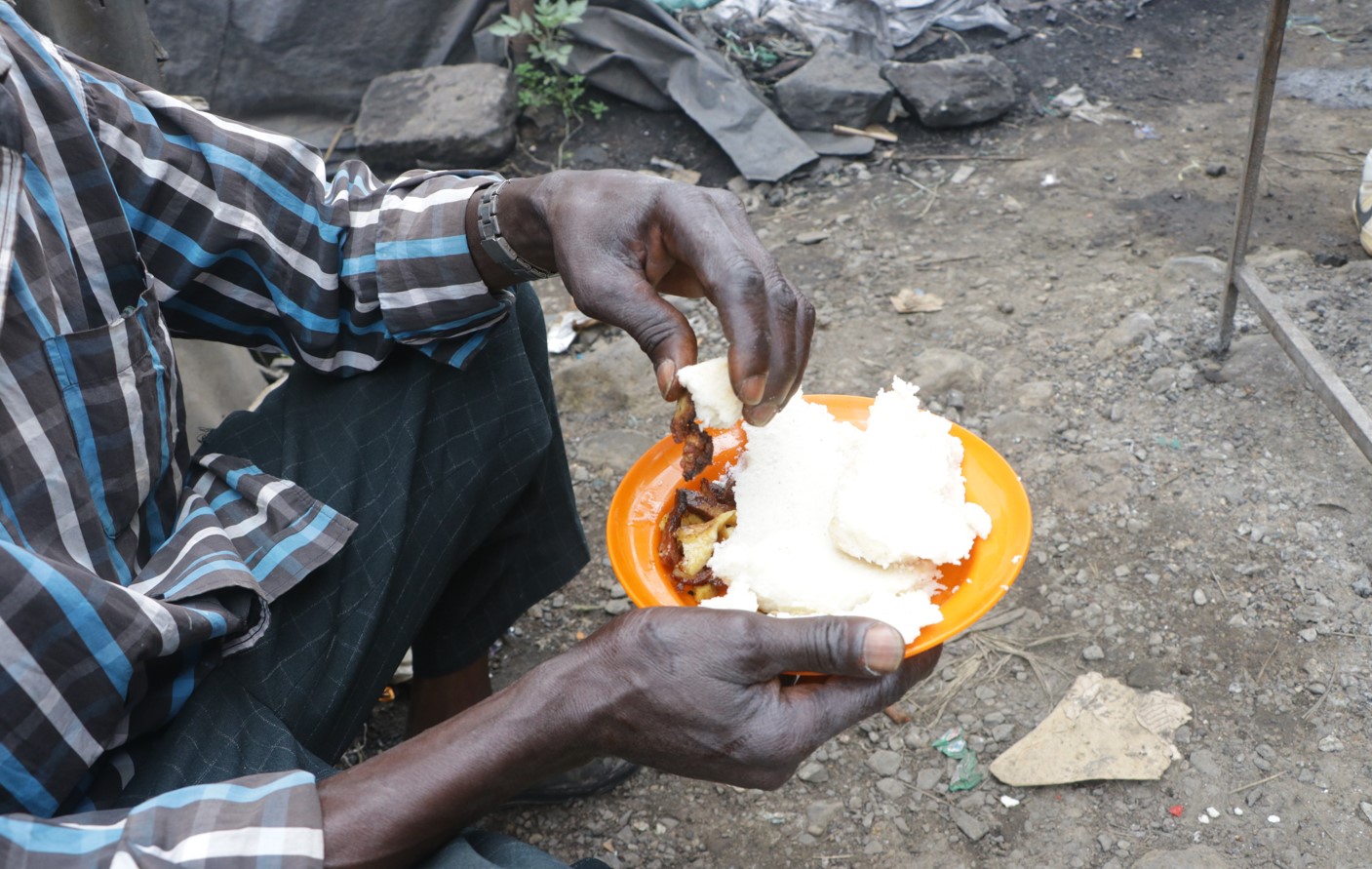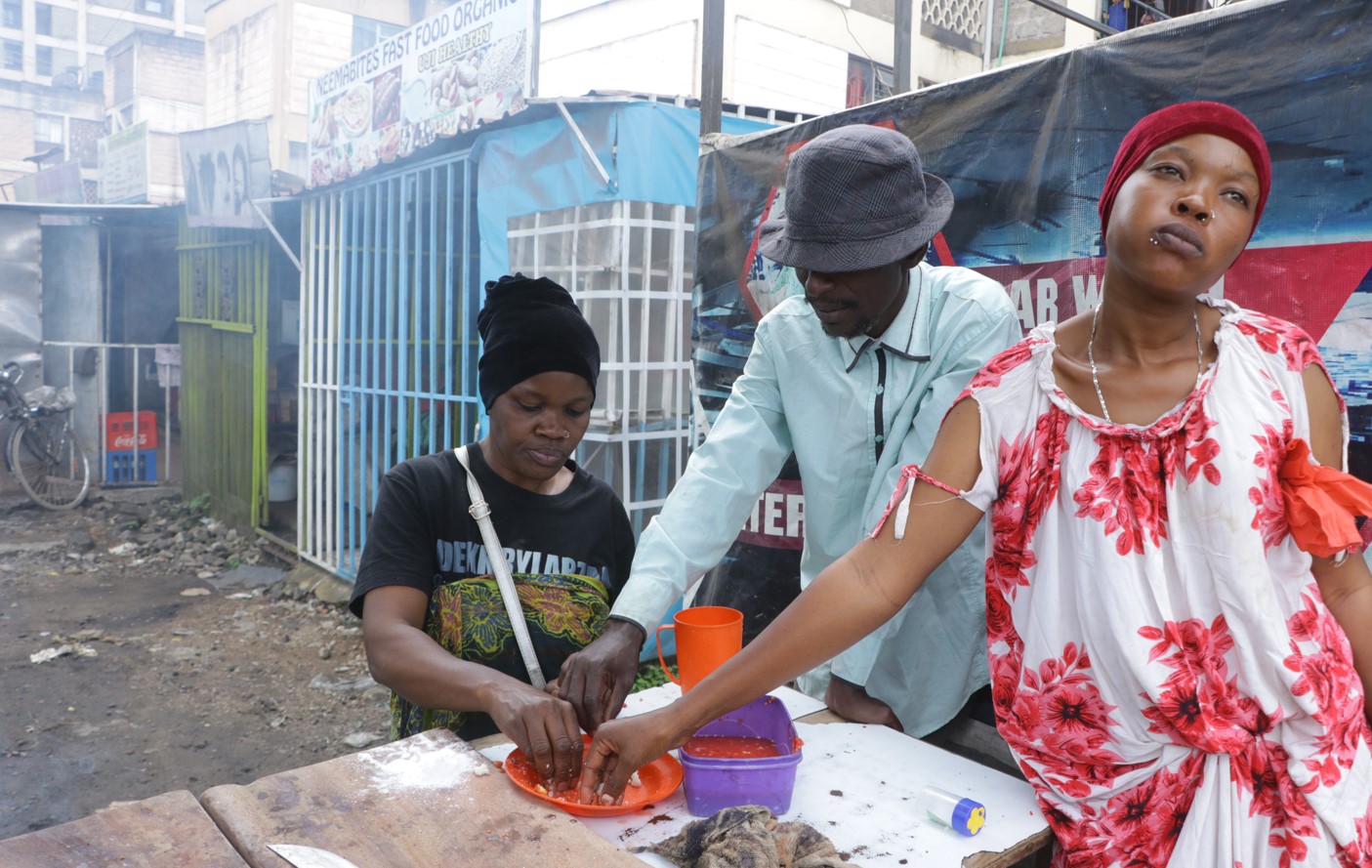Neglecting hand washing endangers lives and increases diarrhoea risk

A spot check by The Easleigh Voice revealed several concerning street food hygiene practices, particularly in casual eateries.
"Germs are not aware" is a commonly used phrase among Kenyans who knowingly disregard hygiene standards, neglecting to clean their hands or the food and fruits they intend to eat. While handwashing before eating has been a longstanding habit taught and emphasised for generations, many today can relate to abandoning this practice, particularly when consuming street food and junk in our fast-paced world.
Chris Okoth, a street food vendor, shares his insights on how customers interact with street food.
More To Read
- Nine fridge habits that could be ruining your food
- New study links smartphone use on the toilet to rising haemorrhoid cases
- AI-powered imaging technology can now detect deadly food toxins, study finds
- Kenya pushes for strict pesticide ban across COMESA bloc
- Why camel milk is gaining ground and why experts urge safer consumption
- Clean hands, safe bites: Why everyday food habits matter more than you think
“We prioritise cleanliness in the food we sell, but most customers don’t ask about water. They just eat whatever is provided without much inquiry,” said Okoth.
Okoth highlighted that in his business, he makes a conscious effort to avoid touching the food directly with his hands as much as possible.
“Most of my snack customers are men and don't pay much attention; they simply eat the snacks. Some even forget themselves and use their bare hands, especially when they are very hungry and in a hurry," said Okoth.
When it comes to patron behaviour, Okoth observes that even in situations where serviettes are provided, a large number of male customers are notorious for using their unclean hands when eating: “While women are typically more aware of hygiene and frequently request serviettes, men frequently eat with their bare hands, thinking that germs are unaware.”
Joel Mwangi, who works at a construction site in Eastleigh, shares that the habit of eating without washing hands developed gradually: “When you work on a construction site, you get used to dirt, and sometimes washing hands takes time. We mostly use spoons, but occasionally we forget and touch the food, especially if it’s something like meat on the bone,” Mwangi said.
 A man eating street meat and ugali in Eastleigh. Photo by Justine Ondieki
A man eating street meat and ugali in Eastleigh. Photo by Justine Ondieki
He points out that they often face time constraints and are in a hurry, with many people gathering in the area, so the quicker they eat, the better. “Eating without washing hands, especially with foods like groundnuts or maize, is a common practice,” said Mwangi.
A spot check by The Easleigh Voice revealed several concerning street food hygiene practices, particularly in casual eateries. Many people don't wash their hands with soap before eating.
For example, fruit washed on the street is frequently wrapped in the same paper bag as the washing, with water stored in small, hole-filled bottles. Regarding snacks like crisps or groundnuts, handwashing is often disregarded. Some people profess to use spoons, yet they frequently forget and use their dirty hands when eating meat.
Dr Esther Mwaura from a medical facility in Eastleigh noted that handwashing has been significantly neglected post-COVID-19.
"Washing hands is crucial because our hands come into contact with countless microorganisms that are invisible to the eye. These germs hide on our hands and are easily transferred," she explains.
Dr Mwaura notes that neglecting handwashing leads to the prevalence of diseases. "Several diseases are associated with eating with dirty hands, such as diarrhoea and oral diseases, especially in children who experience a surge in diarrhoea when they eat with dirty hands."
She also mentions that respiratory diseases and skin rashes can spread through dirty hands. "Many of these diseases are avoidable if practices like handwashing are given attention," she adds.
She notes that germs can hide under the nails, so they should be kept short or cleaned and thoroughly washed.
As the world celebrates Food Safety Day, the World Health Organization highlights five key practices for safer food handling: keeping food at safe temperatures, maintaining cleanliness, separating raw and cooked foods, ensuring thorough cooking, and using safe water and raw materials.
 Pumwani ward residents eating food at a casual eatery in Eastleigh. Photo by Justine Ondieki
Pumwani ward residents eating food at a casual eatery in Eastleigh. Photo by Justine Ondieki
WHO notes that diarrheal disease is the third leading cause of death among children aged 1 to 5 years. Annually, diarrhoea claims the lives of approximately 443,832 children under 5 and an additional 50,851 children aged 5 to 9 years.
A significant portion of diarrheal disease can be prevented through safe drinking water, adequate sanitation, and proper hygiene. Globally, there are nearly 1.7 billion cases of childhood diarrheal disease each year. Diarrhoea is also a major cause of malnutrition in children under 5 years old.
According to the Centers for Disease Control (CDC), washing hands is essential for keeping yourself healthy and preventing the spread of respiratory and diarrheal infections. Germs can easily transfer from person to person or from surface to person.
This can happen when you touch your eyes, nose, and mouth with unwashed hands, prepare or eat food and drinks with unwashed hands, touch contaminated surfaces or objects, or blow your nose, cough, or sneeze into your hands and then touch other people's hands or common objects.
There are specific times when washing your hands is particularly crucial to prevent the spread of germs. These key times include before, during, and after preparing food, before and after eating food, before and after caring for someone who is sick with vomiting or diarrhoea, and before and after treating a cut or wound.
It is also important to wash your hands after using the toilet, changing diapers, cleaning up a child who has used the toilet, blowing your nose, coughing, sneezing, touching an animal, animal feed, or animal waste, handling pet food or pet treats, and touching garbage.
CDC notes that handwashing is simple and highly effective. The process involves five steps: wetting your hands with clean, running water (warm or cold), turning off the tap, and applying soap.
Next, lather your hands by rubbing them with soap, making sure to lather the backs of your hands, between your fingers, and under your nails. Scrub your hands for at least 20 seconds, rinse your hands well under clean, running water, and then dry them using a clean towel or an air dryer.
Top Stories Today















































